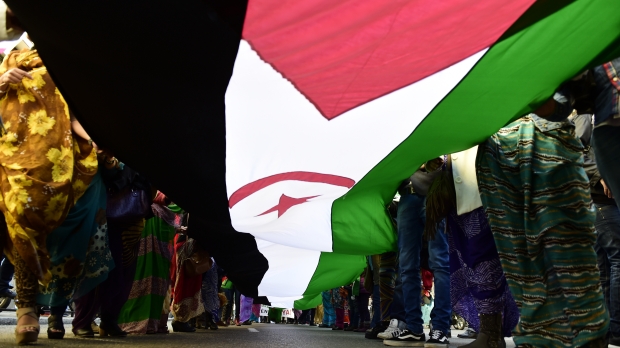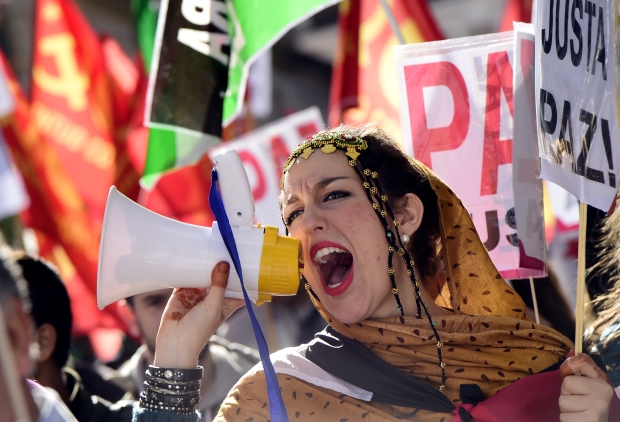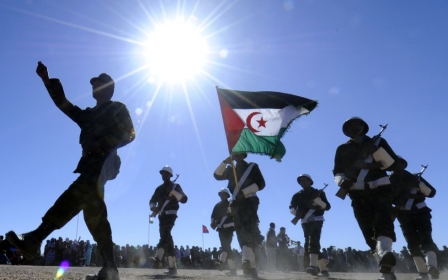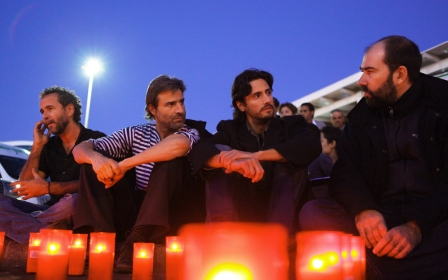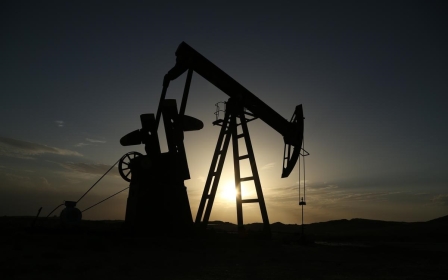Huge protest in Spain marks conference to support Western Sahara independence vote
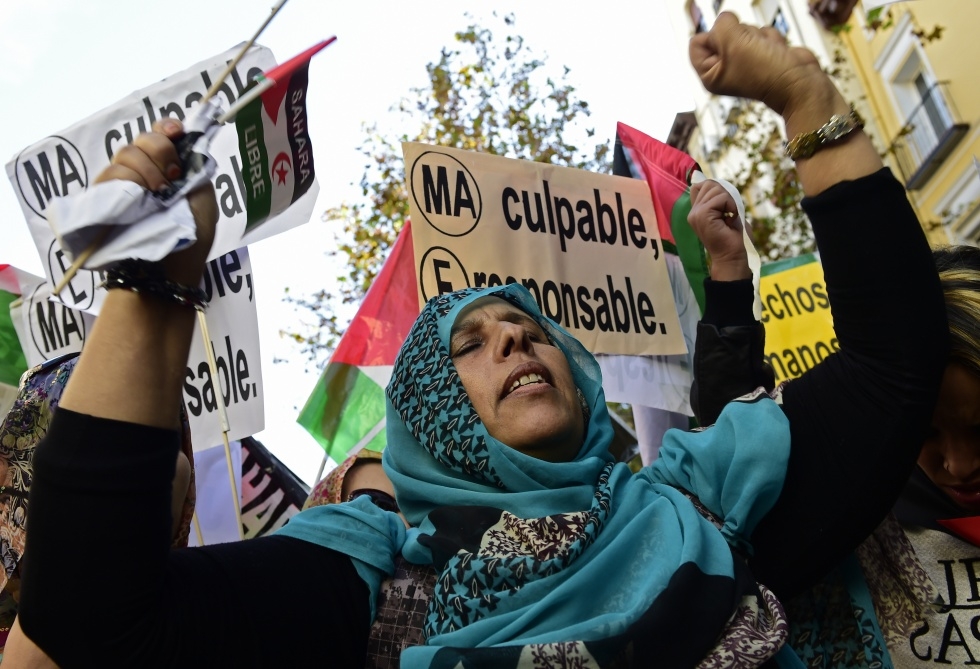
Several thousand people demonstrated in Madrid on Sunday in support of independence for the disputed territory of Western Sahara, a former Spanish colony in north-western Africa.
About 3,000 protesters marched from Atocha railway station to the central Plaza de la Provincia behind a banner declaring "Free Sahara now!", an AFP photographer said.
Banners from many parts of Spain were seen at the demonstration.
There was also live music and street performers dressed in the red, green, black and white of the traditional flag of the Sahrawis, the territory’s indigenous population.
"We believe the Saharawi people have to right to self-determination," said Jose Taboada, president of the Coordination of Spanish Associations of Solidarity with Western Sahara, which organised the protest and wants the territory to have a vote on independence.
"This is a scream to demand that the Spanish government intervene to help the Sahrawis to be able to vote to decide what they would like to be," he told AFP.
Western Sahara, a territory larger than Britain but with a population under one million people, has lucrative phosphate reserves, rich fishing grounds and potentially oil.
Morocco took control of most of the territory in November 1975 when colonial power Spain withdrew, prompting a guerrilla war for independence that lasted until 1991 when the United Nations brokered a ceasefire and sent in a peacekeeping mission.
The agreement also decreed that a referendum should take place within a few months, under which Sahrawis would vote either for independence or to integrate with Morocco.
However, that vote has yet to take place.
Local Saharawi people have long campaigned for the right to self-determination, but most Moroccans now view the territory as a part of their kingdom.
During a speech on 6 November to mark the 39th anniversary of the so-called Green March, when some 350,000 Moroccans advanced into the disputed territory of Western Sahara, King Mohammad VI of Morocco said the land would remain under Moroccan control “until the end of time.”
Morocco now wants talks about self-rule for the territory under Moroccan sovereignty, but the territory's Algerian-backed Polisario Front independence movement has demanded a referendum that would include the option of full independence.
Several thousand Sahrawis live in refugee camps across the border in western Algeria's barren Tindouf province, and in Moroccan-controlled territory where they complain of repression.
Polisario committed to peaceful methods amid ‘dangerous’ regional waters
The protest was staged to coincide with a European conference for support for the Sahrawi people held in Madrid.
The conference wrapped up with a resolution by the participants accusing Morocco of preventing the United Nations' envoy for Western Sahara, Christopher Ross, of carrying out his mission.
"The conference renews its support for Christopher Ross and recognises his determination to carry out his mission," the resolution added.
Morocco in 2012 said it had lost confidence in Ross, claiming he made "biased and unbalanced" decisions concerning the disputed region.
"The Polisario Front and the Sahrawi government remain convinced by the Sahrawi public opinion of the need to continue on a peaceful and diplomatic path," the head of the Polisario, Mohamed Abdelaziz, told AFP on the sidelines of the conference in Madrid.
"The situation in the region is dangerous, with a real increase in the causes of instability as the situation in Libya, Mali and the Sahel region in general show," he added.
"The Sahrawi republic and the Polisario Front are necessary forces to protect stability and moderation, to protect the region against a slide towards extremism," he added.
"The side that has chosen war and escalation and extremism is, unfortunately, Morocco."
Europe and the United States have expressed concern that the conflict, which has soured relations between Morocco and Algeria, is preventing the two neighbours from working together to contain Islamist violence in the region.
Middle East Eye propose une couverture et une analyse indépendantes et incomparables du Moyen-Orient, de l’Afrique du Nord et d’autres régions du monde. Pour en savoir plus sur la reprise de ce contenu et les frais qui s’appliquent, veuillez remplir ce formulaire [en anglais]. Pour en savoir plus sur MEE, cliquez ici [en anglais].


